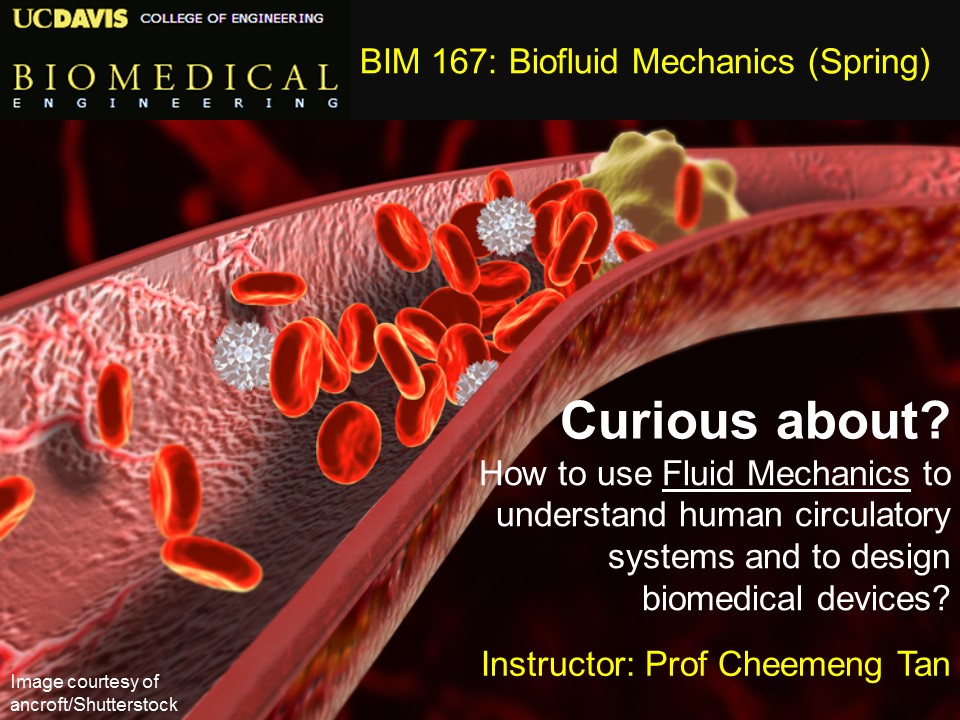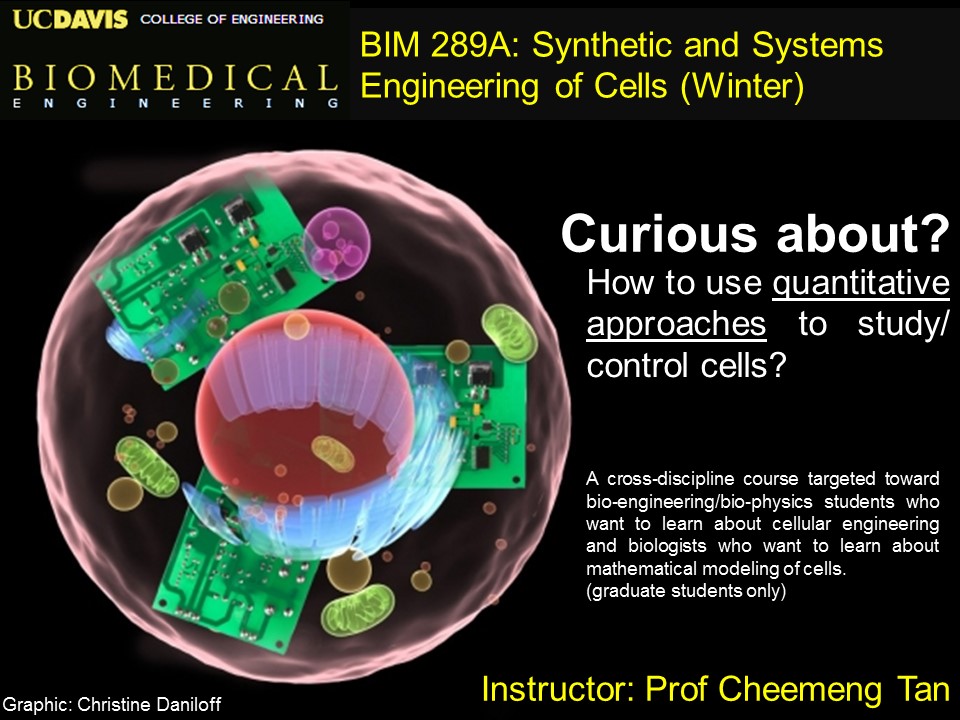BIM 106 Biotransport PhenomenaBasic theories of transport phenomena are presented and applied to mammalian and cellular physiology. Quantitative description of biological transport phenomena using the principles of fluid and mass transfer. |
|
 |
BIM 167 Biomedical Fluid MechanicsThe understanding of fluid mechanics is critical for the design of biomedical devices and studies of disease development. In this course, basic theories of fluid mechanics will be presented to establish basic intuition on fluid dynamics of human circulatory systems. Next, the basic theories will be applied in biomedical and biotechnological case studies. Fluid dynamics will be analyzed using analytical approaches and computational modeling. Major elements of the course will be applied through a class project. |
BIM 161 Biomolecular EngineeringIntroduction to the basic concepts and techniques of biomolecular engineering such as recombinant DNA technology, protein engineering, and molecular diagnostics. |
|
 |
BIM 264 Synthetic and Systems Engineering of CellsSynthetic biology is an emerging discipline that aims to engineer and control biological systems for biotechnological applications and biological studies. This course will cover basic principles and analysis of synthetic biological systems using mathematical tools, including differential equations, stochastic models, and nonlinear dynamics. The course will introduce concepts of synthetic and systems biology through their applications in studies of cell fate decision (cell cycle and differentiation). Furthermore, the course will discuss applications of synthetic cells in bio-computation, disease treatment, cancer-cell identification, and production of bio-commodities. |
